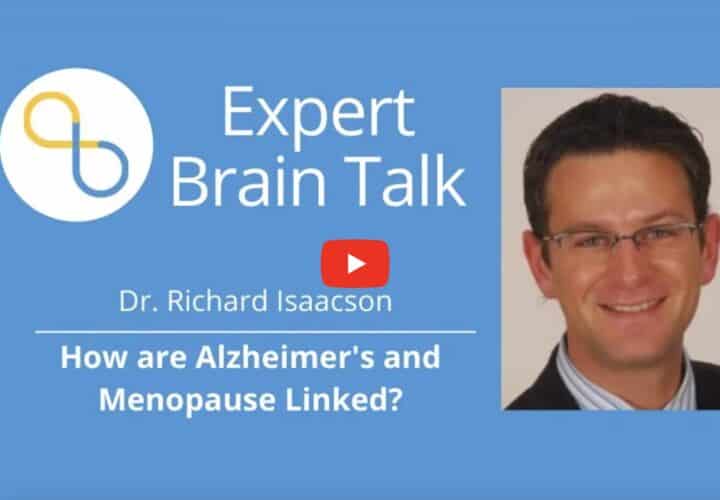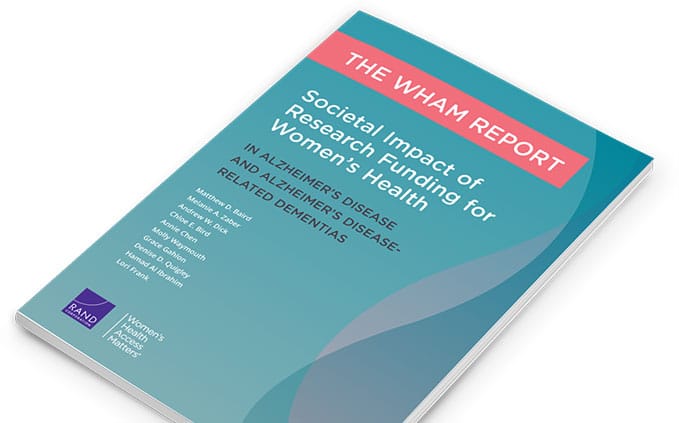Greater exposure to estrogen is linked with less brain shrinkage in middle-aged women, a small study suggests.
Roughly two thirds of Americans with Alzheimer’s are women, but it isn’t exactly clear why the disease disproportionately impacts females. Given that age is the strongest known risk factor for Alzheimer’s, scientists have previously attributed the imbalance to women’s longevity. But researchers are beginning to realize there’s likely more to this story. When it comes to Alzheimer’s, growing evidence shows there are important biological differences between men and women.
In recent years, scientists have honed in on estrogen as one biological factor that may underpin women’s risk for developing Alzheimer’s. This sex hormone is known to play a versatile role in maintaining brain functions, like supporting cell growth and communication. But what happens to women’s brains when estrogen levels drop? And how does estrogen replacement impact brain health?
A small study of 99 women recently published in Neurology found that menopause, which leads to a decline in estrogen levels, was linked with lower gray matter volume in the brain regions vulnerable to Alzheimer’s. On the other hand, the team observed that certain indicators of greater estrogen exposure, such as the use of hormone therapy and having more children, was associated with larger gray matter volume in some of these brain regions.
“Our findings suggest that while the menopause transition may bring vulnerability for the female brain, other reproductive history events indicating greater estrogen exposure bring resilience instead,” Lisa Mosconi, the study’s senior author and associate professor of neuroscience in neurology at Weill Cornell Medicine, said in a news release.
For the study, Mosconi and colleagues examined data of 99 women, aged between 40 to 65, who were cognitively normal. The team analyzed participants’ reproductive histories, magnetic resonance imaging (MRI) scans and cognitive tests, comparing the results with 29 men of similar ages.
The researchers found that women transitioning to menopause and those in post-menopause had lower gray matter volume in brain regions most affected by Alzheimer’s, compared to the pre-menopausal group and men.
On the flipside, the team observed that having more children, longer reproductive span (measured by the difference between participants’ age at menopause and age at the first menstrual cycle), and using hormone replacement therapy and hormonal contraceptives was linked with greater gray matter volume in certain brain regions susceptible to Alzheimer’s.
They found no association between cognitive measures and indicators of estrogen exposure, though participants with higher gray matter volume in some brain regions tended to score better on the cognitive tests.
Taken together, the researchers say the results add to previous findings suggesting that estrogen could preserve women’s brain health, countering the effects of menopause. But they cautioned against interpreting the recent study’s findings to be directly related to Alzheimer’s risk, given that measures of gray matter volume from MRIs are not specific to the disease.
So, further research that includes beta-amyloid and tau, hallmarks of Alzheimer’s, and longitudinal studies are needed, the study’s authors wrote. And the team hopes to delve into the biological mechanisms underlying the link between estrogen and gray matter volume.
Meanwhile, scientists are also probing a host of different gender-specific variables in Alzheimer’s, including genetics, comorbidities, Alzheimer’s pathology, the brain’s glucose metabolism and socioeconomic factors. By identifying risk factors across a woman’s lifespan, researchers are aiming to develop personalized strategies and treatments to prevent or delay the onset of Alzheimer’s symptoms.



